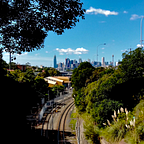The Commonwealth — an Explainer
How it came to be and why it’s valuable
Perhaps the greatest quiet success of the 20th century was the establishment of the Commonwealth of Nations, a family of nations which now has 54 members, with more seeking membership.
The story of the Commonwealth starts where that of the British Empire tapers off. Whereas other empires fell, the British Empire evolved. It took a number of figures and a process of gradual development for it to take the thriving form it has today.
Inception
In 1867, Canada become the first part of the Empire to become its own self-governing, sovereign Dominion. While other parts of the Empire already had internal self-government — such as the colonies of Australia — or would later attain it, Dominion status inferred yet greater autonomy, implying equality with Britain. Other colonies would follow.
Lord Rosebury had in 1884 already described the empire as a “Commonwealth of Nations” during a visit to Australia. Australia attained Dominion status on Federation in 1901. New Zealand and Newfoundland followed in 1907, after which came South Africa in 1910, Ireland in 1922, India and Pakistan in 1947 and Ceylon (Sri Lanka) in 1948.
A specific proposal was made by South African statesman Jan Smuts in 1917, wherein he coined the term “British Commonwealth of Nations”. The term was recognised in the Anglo-Irish Treaty of 1921.
The 1926 Balfour Declaration formalised the structure of the Commonwealth, declaring Britain and the Dominions to be:
…autonomous Communities within the British Empire, equal in status, in no way subordinate one to another in any aspect of their domestic or external affairs, though united by a common allegiance to the Crown, and freely associated as members of the British Commonwealth of Nations.
The Commonwealth had emerged from theory into reality. Further documents refined its design. These include the Statute of Westminster in 1931 and the London Declaration in 1949, under which India was able to remain in the Commonwealth after becoming a republic, still recognising the Sovereign as the Head of the Commonwealth.
Maturity & purpose
This year, the Commonwealth Heads of Government will meet in Rwanda. Rwanda, despite its flaws, is a representation of the Commonwealth’s success. The country has improved its standing since the horrific genocide in 1994. Though it was never a part of the Empire, it has adopted the English language and embraced cricket, and has even considered switching to left-side driving to allow for more seamless travel with its neighbours.
Culture
The shared culture that exists amongst Commonwealth nations is a key part of its existence. It ranges from the use of the English language and a number of shared sports, as demonstrated by the Commonwealth Games. It also includes a shared adherence to democratic values.
Promoting democracy
In 1961, off the heels of becoming a republic, South Africa was essentially forced to leave the Commonwealth under pressure from other members for its policy of apartheid. Zimbabwe was suspended in 2002 in response to the policies of dictator Robert Mugabe, and left the following year. The country reapplied for membership in 2018.
Commonwealth observers monitor elections, including in Zimbabwe in 2018. As such, the Commonwealth Observer Group reported positives including:
a markedly improved pre-election environment where all parties were generally able to campaign freely; peaceful, well managed and transparent polls on Election Day; and the participation of women as presidential candidates, polling officials, and voters.
It also reported several concerns.
These issues included the acute bias of state media in favour of the governing party; the Zimbabwe Electoral Commission’s limitations in the implementation of its mandate; persistent allegations of intimidation; and the unfair use of incumbency privileges. The Group further singled out the post-election violence, which resulted in fatalities, noting that it marred the final phase of the elections.
Because of these shortcomings, the Group concluded that it was unable to endorse all aspects of the process as credible, inclusive and peaceful.
This monitoring is useful for assessing adherence to democracy where it may be compromised or is at risk of being abused. The Commonwealth also fosters democratic governance through such institutions such as the Commonwealth Parliamentary Association and the Commonwealth Local Government Forum.
Cooperation & civil engagement
Two primary organisations exist within the Commonwealth. These are the Commonwealth Secretariat, focusing on inter-governmental cooperation, and the Commonwealth Foundation, which uses its funds & resources to support engagement between civil society and government institutions.
Commonwealth Family
The Commonwealth Family is the network of organisations, charities & associations within the Commonwealth of Nations. This includes the Association of Commonwealth Universities, which facilitates academic connections and provides the Commonwealth Scholarship and Fellowship Plan. Beneficiaries of this scholarship programme include prime ministers, judges, chief justices, professors, journalists and other notable individuals. It also includes the Commonwealth War Graves Commission, the Commonwealth Lawyers Association, the Royal Over-Seas League — which supports art, music and welfare across the Commonwealth — and the Queen’s Commonwealth Canopy, which promotes forest conservation.
Summary
This year, the Commonwealth looks to the Commonwealth Games in Birmingham, the Commonwealth Heads of Government Meeting in Kigali, Rwanda, and the ongoing celebrations of Queen Elizabeth II’s Platinum Jubilee. These events all underscore the Commonwealth’s persevering bonds in terms of both values and culture.
Some actions of Commonwealth members warrant criticism. While the Commonwealth has in many cases promptly enforced its democratic values — outlined in the Singapore and Harare declarations — in suspending member states that have violated them, there are founded concerns relating to the actions of certain members. These should be called out by the rest of the Commonwealth, and the forum this year will provide an ideal oppurtunity for that.
